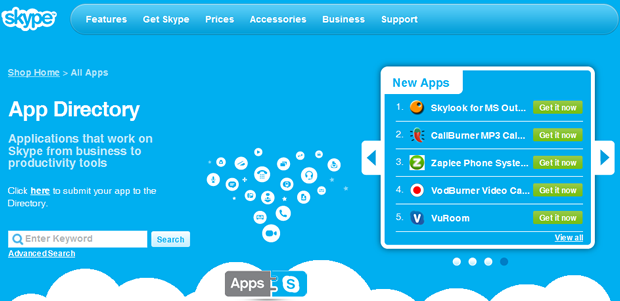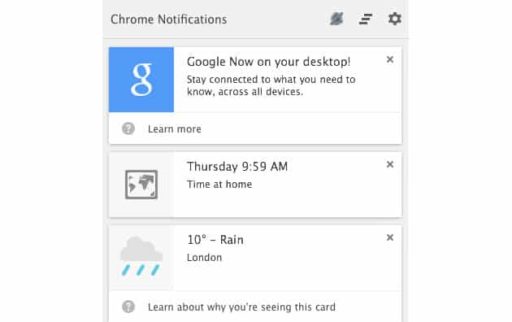Skype appears to have launched a new app directory in the cloud, allowing users to access all the third-party apps for both consumers and businesses built on top of Skype’s API and the site is fairly simple in functionality for now. Skype has sorted both consumer apps and business into groups by genre and featured the top downloaded free and paid apps, top rated apps and the newest apps across the board and by genre. Skype members don’t actually buy or download the apps through Skype, but instead are directed to developer websites or app stores where they can get the software and Skype provides a landing page that gives more information about the application, release date, star rating and comments, features, requirements, screenshots and more…………….
Skype has launched an App Directory for third-party applications integrated with Skype’s telephony service and it’s not much to look at now besides a handful of natural use cases, but as Skype’s footprint grows, the platform and the directory have real potential to grow with it. Skype users can browse a list of all apps; the store offers just 23 at the moment and people can click on categories, such as business, call recording, and desktop sharing. kype has a robust payment-and-credits system to handle its own services. Even though Skype isn’t owned by eBay any more, Skype and PayPal are still pretty well-integrated. Handling payments, refunds and information is a real service Skype could offer both its customers and developers. Skype’s App Directory is currently limited in small yet important ways:
- There are only 20 or so apps at the moment, which isn’t exactly the whole Skype ecosystem. The popular call recorder I use isn’t in there, for example. That number, though, should grow over time.
- Unlike the Apple, Amazon or Android app stores, Skype’s is really a directory, not a store. You can’t purchase the apps through Skype, but are routed to the developers’ individual sites.
Some reasons Skype’s not going the Apple/Amazon/Android route:
- It keeps developers happy. They get full access to user and billing information, and users who are tied to them as much as Skype.
- The system’s a lot easier to scale if you don’t have to worry about handling payments, both in terms of approving apps and managing the backend.
- Skype doesn’t want to use PayPal or credit cards or anything else, but would rather wait until the Microsoft purchase is approved to roll out a 2.0 store using Microsoft’s own payment system.
[ttjad keyword=”general”]




